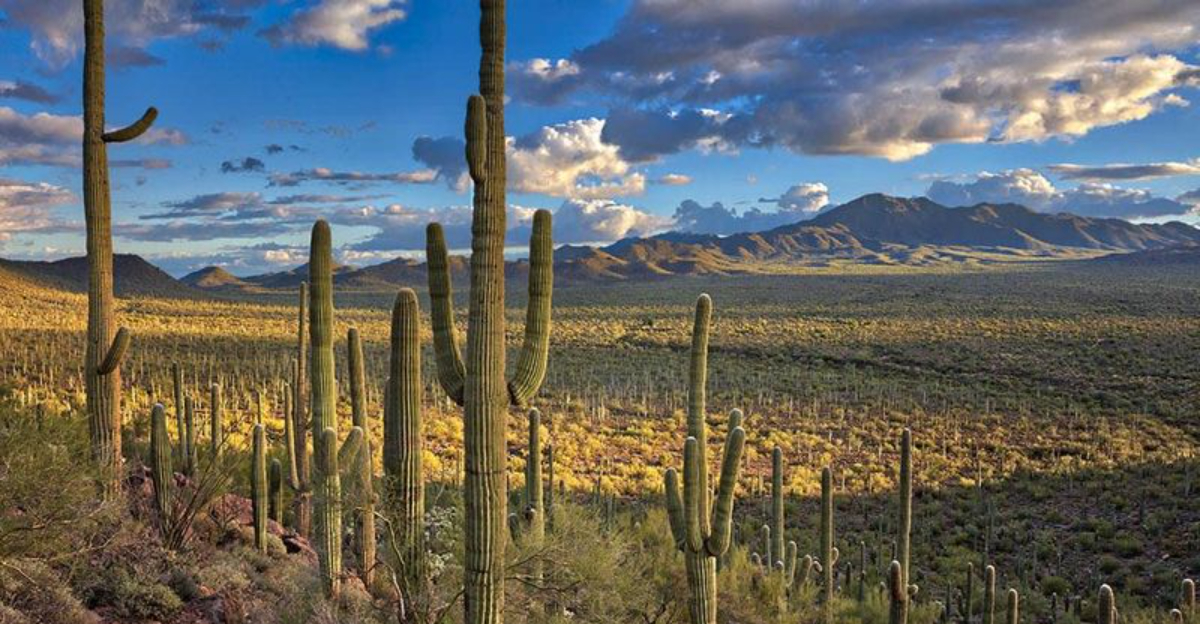
Arizona, with its breathtaking landscapes and vibrant culture, is a favorite destination for travelers. However, it also boasts a collection of unusual laws that often catch tourists unaware. From protecting its flora and fauna to quirky local ordinances, these regulations reflect the state’s commitment to its unique environment and community values.
Welcome to Arizona, Where Even the Cactus Has Rights
Imagine walking through the desert, sun on your back, when suddenly a law you’ve never heard of makes you a rule-breaker. Arizona’s laws are as unique as its landscape. Tourists might be surprised to learn that even cacti have legal protections here.
These laws mirror Arizona’s deep respect for its environment. The saguaro cactus, for instance, is a symbol of the state’s natural beauty and is fiercely protected. Removing or damaging one is illegal, reflecting the significance Arizonans place on preserving their desert ecosystem.
This respect extends beyond plants to every corner of life in the state. As you explore, keep an eye out for those little-known rules that add to Arizona’s charm. They’re not just regulations but a glimpse into the values that shape this remarkable place.
Don’t Touch That Saguaro
In Arizona, the towering saguaro cactus stands as a majestic icon of the desert. However, these giants are not merely decorative; they are legally protected. The state enforces strict regulations to prevent harm to these native plants.
This protection is about more than just aesthetics. Saguaros play a vital role in the local ecosystem, providing habitat and nourishment for desert wildlife. Damage to them can have cascading effects on the environment.
Tourists unaware of these laws might think of taking a piece of cactus home as a souvenir. But doing so could lead to hefty penalties. Instead, capturing their beauty through photos is the perfect way to appreciate these desert wonders without breaking any rules.
When Wildlife Gets the Final Word
Feeding animals in Arizona’s parks might seem like an innocent way to interact with nature, but it’s actually against the law. This regulation helps protect both wildlife and visitors.
Wild animals, such as javelinas and coyotes, can become aggressive or dependent on human food if fed. This disrupts their natural foraging habits and can lead to dangerous encounters. The well-being of these creatures is a priority, and feeding bans are strictly enforced.
Visitors are encouraged to enjoy the stunning wildlife from a safe distance. This approach ensures that the animals remain wild and visitors can experience Arizona’s natural beauty without unintended consequences. Responsible tourism means respecting these guidelines and understanding their importance.
Sleeping Under the Stars? Maybe Not Anywhere You Want
Camping in Arizona’s wide-open spaces seems like a dream, but specific regulations govern where you can set up camp. Many areas, especially in popular parks and near sensitive sites, have restrictions that might surprise travelers.
This is designed to protect the land from overuse and to preserve the serene beauty that attracts visitors in the first place. Unauthorized camping can harm vegetation and disturb wildlife, leading to long-term environmental impact.
Before pitching a tent, it’s essential to check local rules and designated camping areas. By doing so, visitors can enjoy a night under the stars while being mindful of the environment and local laws. This awareness enhances the experience for everyone involved.
Roadside Souvenirs That Could Get You in Trouble
Collecting rocks, bones, or fossils might seem like a harmless way to remember your Arizona trip, but it can land you in trouble. Many areas have specific laws against removing natural items to protect archaeological and geological sites.
These laws ensure that significant scientific and cultural artifacts remain intact for future study and enjoyment. Removing them can damage what makes Arizona’s landscape so unique and rich in history.
Tourists are encouraged to leave these treasures where they are, preserving their natural state. Instead, taking photographs or visiting local museums can offer a similar thrill without the risk. By respecting these rules, visitors contribute to the preservation of Arizona’s fascinating past.
Small-Town Rules With Big Personalities
Many small towns across Arizona have their own quirky regulations that reflect local traditions and community values. Visitors might find themselves unexpectedly in violation of these charmingly unusual laws.
For example, in some areas, there may be restrictions on spitting in public or singing loudly after certain hours. These rules offer a glimpse into the unique character and history of each town, making a visit truly memorable.
Embracing these local quirks adds flavor to your trip and helps you connect with the community. It’s always a good idea to familiarize yourself with the local customs and regulations to ensure a smooth and enjoyable visit.
Travel Smart, Travel Respectfully
Exploring Arizona requires more than just packing sunblock and a camera. Understanding and respecting local laws can make your trip more enjoyable and meaningful. These rules are in place to protect the state’s unique environment and communities.
Engaging with local culture means being aware of the regulations that might seem unusual at first glance. Whether it’s protecting the majestic saguaro or respecting small-town traditions, each law tells a story about Arizona’s values.
By traveling responsibly and staying informed, you can enjoy everything Arizona has to offer while contributing positively to its preservation. This approach ensures that the state’s natural beauty and cultural richness remain available for generations to come.
Dear Reader: This page may contain affiliate links which may earn a commission if you click through and make a purchase. Our independent journalism is not influenced by any advertiser or commercial initiative unless it is clearly marked as sponsored content. As travel products change, please be sure to reconfirm all details and stay up to date with current events to ensure a safe and successful trip.